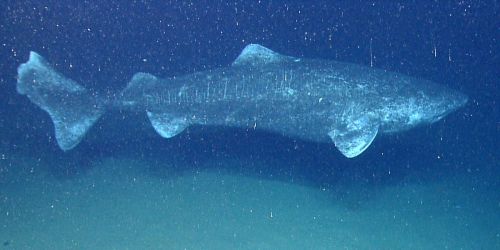Viper dogfish have tiny cells on their bodies that emit light in the deep sea, where they hunt for prey and swallow them whole https://t.co/alXhqL9oKV
— National Geographic (@NatGeo) January 11, 2018

Movie buffs will feel like a nightmare whenever they think about the weird extra-terrestrial beings in the movie 'Alien' directed by Ridley Scott. Now, a similar living being with extended jaws and needle-like teeth has been captured off the coast of Taiwan. The alien-styled creature is actually sharks in the viper dogfish species, and it is very rare to spot them on deep seas.
Due to their rare appearances, very little is known about viper dogfish sharks. The creatures have a glowing black skin, and their teeth are highly sharp just like sewing needles. During the time of hunting, they make use of their extending jaws to gulp their prey.
Taiwan Fisheries Research Institute, in a statement, revealed that these weird sharks were caught at a depth of 350 metres during a routine survey of the fish species conducted in the Taitung area. As per the statement, five sharks were caught during the survey, and unfortunately, only one was alive when they were pulled out from the water. Researchers soon submerged the alive one to conduct more studies on it, but it also died within 24 hours. The sharks which were caught ranges from 24 to 36 centimeters in length. However, a matured viper dogfish will measure up to 54 centimeters.
The research team is reportedly very much excited to capture the viper dogfish sharks, as these species very rarely make an appearance. It was in 1986 that researchers caught a viper dogfish for the first time, and since then, it has been spotted only a handful of times which made experts believe that their population is very less. The International Union for the Conservation of Nature considers this species 'data deficient' due to the limited information available about these sea creatures.
They described the needle-like teeth of the sharks as 'snake-like-fangs', and revealed that the hunting habit of these creatures is very similar to that of goblin sharks. Interestingly, goblin sharks are also a rare species which live in deep waters with a distinctive snout.









